Skin Cancer Diagnosis, Treatment and Removal

Skin Cancer Is Not A Terminal Diagnosis Anymore, Let Our Expert Providers Develop a Customized Plan To Diagnose, Treat and Remove Yours. It's Important To Call Us Now!
Here for you locally in
Southern California:
Temecula, Hemet, Murrieta, Riverside, Corona, Menifee, Sun City,
Moreno Valley, Victorville, La Quinta, Palm Springs
Northern California:
Yuba City and Stockton
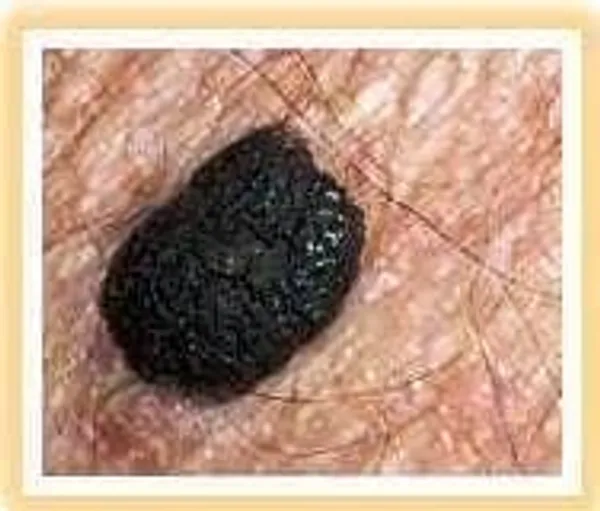
What is Skin Cancer?
Skin cancer is the abnormal, uncontrolled growth of skin cells. The most common skin cancers are basal cell carcinoma, in this type of cancer, the cells in the lowest layer of the epidermis are affected. Squamous cell carcinoma is not as common and affects cells in the middle layer of the epidermis. Rarer and more dangerous skin cancer is melanoma which is the leading cause of death from skin disease.
The risk factors for developing skin cancer include pale skin, a family history of melanoma, and regular sun exposure. These cancers vary in shape, color, size, and texture. If you see a new, changed, or otherwise suspicious growth anywhere on your body, you should be examined immediately by a physician. Early intervention is essential to preventing cancer from spreading.
Skin Cancer is by far the most common cancer in the world, accounting for 75% of all cancer diagnoses. The incidence of skin cancer is rising, even though most cases could be prevented by limiting the skin’s exposure to ultraviolet radiation. Most cases of skin cancer are cured, but the disease is a major health concern because it affects so many people.
Men are 3 times more likely to get skin cancer than women. Many people diagnosed with skin cancer are between the ages 45 and 54, although there has been an increase in the different types of skin cancer in younger people. Genetics, Geography, and Race are all factors that increase your chance of contracting the early detection and treatment of skin cancer is the only way to a cure. Since skin cancer is always at the top layers of your skin, it is the only type of cancer that is always detectable in its early years, and therefore more likely to be cured.
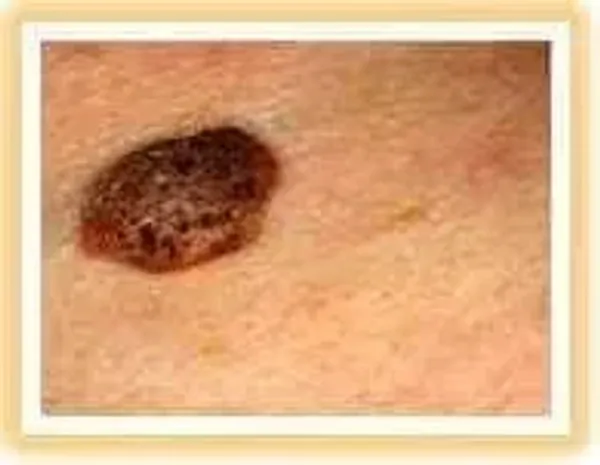
Types of Skin Cancer
Skin cancers fall into two major categories: melanoma and nonmelanoma
- Melanoma can start in heavily pigmented tissue, such as a mole or birthmark, as well as in normally pigmented skin. It commonly appears first on extremities, chest, or back, although it can occasionally arise on the palm of the hand; on the sole of the foot; under a fingernail or toenail; in the mucus linings of the mouth, vagina, or anus; and even in the eye.
- Melanoma is a potentially aggressive, life-threatening cancer. It is usually curable if it is treated early, it progresses faster than other types of skin cancer and can spread beyond the skin to affect numerous parts of the body, including the bones or brain. Once this occurs, melanoma becomes very difficult to treat and is incurable.
- Nonmelanomas are rarely life-threatening. These include basal cell carcinoma and squamous cell carcinoma. They progress slowly, seldom spread beyond the skin, are detected easily, and usually are curable. In addition to the two listed above, there are a few rare nonmelanomas, such as Kaposi’s sarcoma, a potentially life-threatening disease characterized by purple growths and associated with a suppressed immune system and always seen in patients with AIDS or the elderly.
Actinic Keratoses is a noncancerous skin growth that may become cancerous. These are crusty, reddish lesions that may scratch off, but grow back on sun-exposed skin.
Call One of Our Convenient Locations Today!
Southern
California
Menifee/Sun City: (951) 566-5634
Moreno Valley: (951) 656-2200
Murrieta: (951) 433-5410
Palm Springs: (760) 832-6277
Northern
California
Stockton El Dorado Office:



What Happens if you are Diagnosed with Melanoma?
Melanoma develops when normal pigment-producing skin cells become abnormal, begin to grow uncontrollably, and start to invade surrounding tissues.
Usually, only one melanoma develops at a time and can begin in an existing mole or other skin growth but can also start in unmarked skin.
When melanoma is found early, it can often be cured by surgery to remove it. But once melanoma spreads, it is harder to cure.
Here is how the number for a cure breakdown:
- 98% of cancer is found early and treated before it has spread
- 62% of cancer has spread to close-by tissue
- 15% of cancer has spread farther away, such as to the liver, brain, or bones.
Early treatment is the key takeaway here! If you see an abnormal growth in your body, call us to make an appointment for diagnosis and treatment.
The chart on the right shows the ABCDEs for detecting skin cancer:
- Asymmetry. One half doesn’t match the other half
- Border irregularity. The edges are ragged, notched, or blurred
- Color. The pigmentation is not uniform. Shades of tan, brown, and black are present. Dashes of red, white, and blue add to the mottled appearance. Changes in color distribution, especially the spread of color from the edge of a mole into the surrounding skin, also are an early sign of melanoma
- Diameter. The mole or skin growth is larger than 6 mm (0.2 in.), or about the size of a pencil eraser. Any growth of a mole should be of concern
- Evolution. There is a change in the size, shape, symptoms (such as itching or tenderness), surface (especially bleeding), or color of a mole.
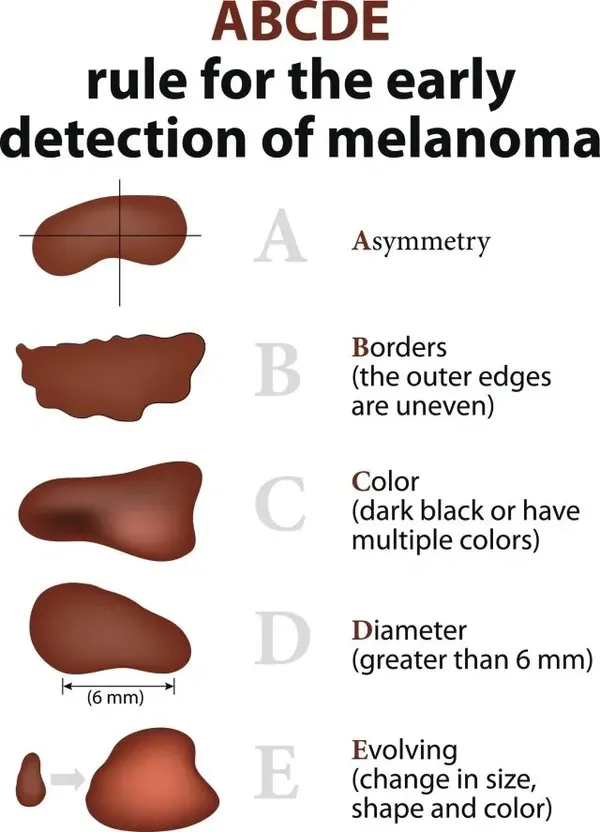
See What Our Customers Are Saying About Us

“Very clean bathrooms, wait wasn’t too long. The staff a …”
Adam Socal

“From the moment I called to my visit to this location the …”
Arthure G

“The service I received at Advance IDermatology was …”
savagebeastbtw
Insurance Providers We Accept, Please Ask Us About Yours





When You Need A Dermatologist, Contact Our SoCal Locations

TEMECULA CA

HEMET CA
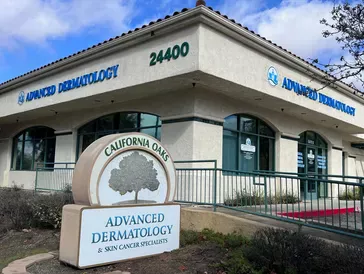
MURRIETA CA

MENIFEE/SUN CITY CA

MORENO VALLEY CA

CORONA CA

RIVERSIDE CA

VICTORVILLE CA

PALM SPRINGS CA
Contact One Of Our Northern CA Locations
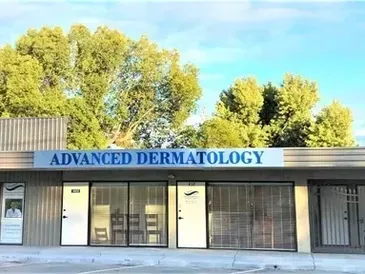
YUBA CITY CA
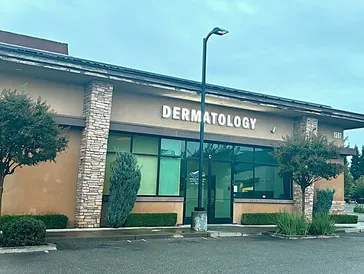
STOCKTON -March
Lane Office

STOCKTON - El
Dorado Office
Advanced Dermatology & Skin Cancer Specialists have strict privacy guidelines in place. They will not use your personal information for any purposes other than to understand what you need from us and to contact you. We do not sell any information in any form to any other company. Your information is strictly used by Advanced Dermatology & Skin Cancer Specialists and their staff to ensure we provide you with the most complete customer service.
Within our Website, Advanced Dermatology & Skin Cancer Specialists may provide links to third-party applications, products, services, or websites for your convenience and information. If you access those links, you will leave our site. We do not control those third-party sites or their privacy practices, which may differ from our practices. We do not endorse or make any representations of third-party sites. The personal data you choose to provide to or that is collected by these third parties is not covered by the Advanced Dermatology & Skin Cancer Specialists Privacy Statement. We encourage you to review the privacy policy of any site you interact with before allowing the collection and use of your personal information.
